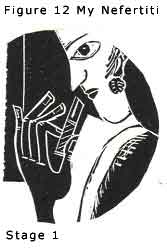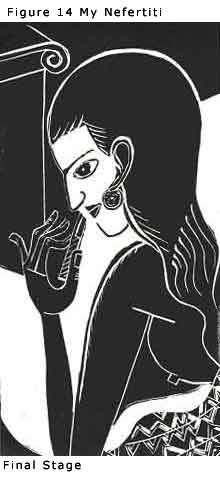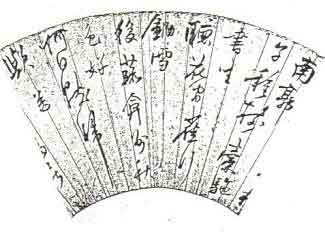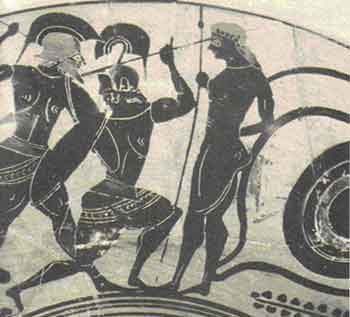|
On Beauty |
|
  In the first stage of My
Nefertiti, certain spatial relationships in the composition need to be
addressed. So I decided to start a new stage in order to achieve what I
want. In the final stage the straight at the base of the fingers is
produced to form the straight denoting the arm- pit
area. Finally, the straight forming the lower edge of the arm is produced
to form the base for the shiny part of the hair. The curves appearing in
the composition in the breast and elsewhere have the
curvatures of perfect circles or coils. In the first stage of My
Nefertiti, certain spatial relationships in the composition need to be
addressed. So I decided to start a new stage in order to achieve what I
want. In the final stage the straight at the base of the fingers is
produced to form the straight denoting the arm- pit
area. Finally, the straight forming the lower edge of the arm is produced
to form the base for the shiny part of the hair. The curves appearing in
the composition in the breast and elsewhere have the
curvatures of perfect circles or coils. |
 Unfortunately, the second
stage of My Nefertiti is not a good resolution either. It does not
show
the specific facial features that I want what is essentially an imagined
Egyptian beauty to assume.
Finally, the third and final stage yields a portrait that even the great
Titian would smile. Unfortunately, the second
stage of My Nefertiti is not a good resolution either. It does not
show
the specific facial features that I want what is essentially an imagined
Egyptian beauty to assume.
Finally, the third and final stage yields a portrait that even the great
Titian would smile.
In this composition may be
found a complex system of supreme spatial relationships, each facet or
fragment of which is designed to
give rise to great visual
pleasure.
Visual pleasure arises
out of the actualization of the supreme mathematical relationship from
which we derive the notion of the sublime. When Einstein looked at
certain mathematical relationships found in the universe, he exclaimed
that he had seen the hand of the Creator in it. Likewise,
Shroedinger, under a similar circumstance, proclaimed that we (i.e. the
transient beings) are actually God Almighty Himself. Those mystics of
scientists were able to see what Buddha saw at his moment of enlightenment
under a tree. This seeing makes each of them the Buddha.
The goal of a viewer is to
examine the work’s vitality, movement, integrity in their calligraphic and
poetic elements. To detect those dynamics in a masterfully executed
painting, we must look at art intently. We must look at it and look at it
until it “speaks” to us in our native tongues, calling us each tenderly by
our names. Seeing beauty until we “swoon into our own dying” (quoting Ken
Wilber). Formal transfiguration in great art is what imparts life to the
work. That is what makes the art so timelessly engaging. That
transfiguration which also transforms the viewer. |
  |
  |
Figure 19: Ben Lau “Dispute”
linoleum cut
In the above composition,
the compactness of forms is not just evident in the individual animal
configuration but also throughout the entire structure of the composition.
The “ring formed of the bodies of the three animals is as solidly grounded
as that formed in the “ring” of the dancers in Matisse’s “Dance”. An
elaborate geometric groundwork has made this compactness possible.
Until one has learnt how to
look, the vicious cycle of getting fooled would never, ever be broken!
Ben Lau Spring 2005
|